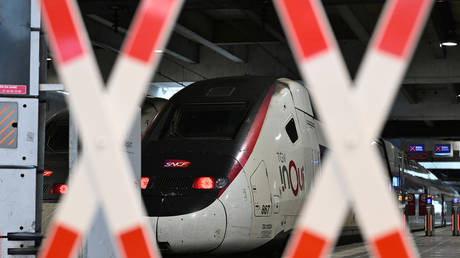Earlier this past week, President Isaias Afwerki, and his delegation, attended the Africa-Italy Summit. The gathering, held in Rome under the theme, “A Bridge for Common Growth” and drawing leaders and representatives from 45 African nations, focused on fostering partnership and cooperation across various areas including, economy and infrastructure, food security, energy security and transition, vocational training, and culture.
During one of many meetings with Italian officials and representatives, President Isaias highlighted important aspects of Eritrea’s history, particularly Italian colonial rule over the country and subsequent British military administration.
This article delves a bit deeper into this period, which although extremely important and relevant – both to the present and to the country’s national identity – is sometimes overlooked or forgotten.
Looking back at an important chapter of Eritrea’s history
Located in the volatile Horn of Africa and possessing a long, pristine coastline on the Red Sea, Eritrea is a country with a rich, complex, and turbulent history. Prior to Italian colonial period, over a duration of several centuries, different parts and regions within what is now regarded as Eritrea were ruled or repeatedly invaded and pillaged by the Ottoman Turks, the Egyptians, and various warriors, feudal lords, and kings from areas in what later emerged as present-day Ethiopia and Sudan.
By the late 19th century, the Italians had begun to purchase and lay claim to parts of the country, steadily penetrating from the coastal areas into the interior highlands in their aim to establish a settler colonial state. Italian colonization of Eritrea, in the words of G.K.N. Trevaskis, “was connived at and, indeed encouraged by the British, who saw in the development of Italian influence in the Red Sea a useful counter to the French.” Eventually, on 1 January 1890, Italy’s King Umberto proclaimed Eritrea as Italy’s “colonia primogenita (first-born colony)”, with Massawa, a historic port city, declared as its capital. (Asmara would be made the Eritrean capital in 1897 – a status that it has retained until present.)
Over the next half century, Eritrea remained firmly under the grip of Italian colonial rule. However, the period also sparked rapid socioeconomic transformation, urbanization, and significant industrial progress, including the construction of modern port facilities, health centers, airports, workshops and factories, roads, railways, communication facilities that were among the best in Africa, and other infrastructure. This economic drive was prompted essentially to benefit and for the purposes of the relatively huge Italian settler community which numbered around 70,000 at its peak.
An illustrative look is provided in a book written by Brigadier Stephen H. Longrigg, a civilian who served as chief administrator of the British Military Administration in Eritrea from 1942 to 1944 (and also engaged in deceitful actions aiming to impede Eritrea’s prospects for independence). In his book, A Short History of Eritrea, published in 1945, he describes Eritrea as, “highly developed,” and as having, “superb roads, a railway, airports, a European city as its capital, [and] public services up to European standards.” Similarly, other scholars expressed that, “In 1935 Asmara was the most modern and progressive city in Italian East Africa.”
Eritrea remained an Italian colony until April 1941, when the British-led Allied victory over Fascist Italy at the famous Battle of Keren, extending from 5 February to 1 April, led to the dissolution of the Africa Orientale Italiana – the Italian East African Empire. With the demise of Italian colonial rule, Eritrea was placed under a British caretaker military administration pending an international decision on its long-term fate.
The British forces, led by Lieutenant General (Lt. Gen.) William Platt, had promised forcibly-conscripted Eritreans independence if they would help their forces defeat the Italians, who were led by Lt. Gen. Luigi Frusci. Once the latter had been defeated, the British reneged. As part of a propaganda campaign targeting Eritrean troops, the British even produced and distributed leaflets which declared, “Eritreans! You deserve to have a flag!…This is the honourable life for the Eritrean: to have the guts to call his people a Nation.”
Subsequently, as so-called war compensation, the British proceeded to dismantle many industries and most of the infrastructure that had been developed in Eritrea. What is more, the period of British administration in Eritrea was marked by countless British interventions and underhanded attempts to sow local division, instigate havoc, and fragment Eritrea in a variety of ways, including through political sabotage and stoking violence.
This skullduggery, a key element of British practice across its far flung colonies and territories, was planned and implemented to portray Eritrea as internally fragmented, economically weak, and unviable as independent – all with the ultimate aim of ensuring that Britain’s recommendations to the international community regarding the quashing of Eritrea’s sovereignty and independence would be accepted.
In the end, following a drawn-out international deliberation process that sought to determine the fate of Italy’s former colonies, on 2 December 1950, UN Resolution 390A(V), passed by the United Nations General Assembly, under US tutelage, extinguished Eritreans’ hopes and aspirations for independence, linking Eritrea in a bogus federation with Ethiopia.
The United States (US) determined, within the context of the emerging geopolitics of the Cold War, that its strategic military interests and foreign policy aims could be better protected and served by federating Eritrea with Ethiopia, an increasingly close ally and key partner for America in the fight against the Soviet-led spread of communism in Africa. As was so unambiguously explained by John Foster Dulles, then the US Secretary of State, in a well-known and (in)famous September 1952 speech to the UN Security Council (UNSC) shortly before the resolution was to come into effect,
“From the point of justice, the opinions of the Eritrean people must receive consideration.
Nevertheless, the strategic interest of the United States in the Red Sea basin and considerations of security and world peace make it necessary that the country be linked with our ally, Ethiopia.”
During a large luncheon organized to celebrate the resolution, the Ethiopia emperor even publicly thanked the American ambassador to Ethiopia, and it was widely and gratefully acknowledged that the UN decision was largely down to the influence and efforts of the US.
Over the next decade, Ethiopia’s imperial regime, led by Haile Selassie, systematically violated numerous terms of the international resolution and worked to steadily dismantle the federal arrangement. Finally, in November 1962, Haile Selassie fully dissolved the Eritrean parliament under force of arms and annexed Eritrea, proclaiming it as the empire’s “fourteenth province”.
Rather than representing a fatal blow, however, the move by the imperial regime only inspired greater nationalism among Eritreans and served to give further impetus to Eritrea’s nascent armed struggle for independence, which had emerged in September 1961. During the following three decades, Eritrea’s independence fighters – receiving little external aid or support, and being largely ignored, if not opposed outright, by the international community – battled first American- and then Soviet-backed Ethiopian regimes in a bloody, protracted struggle.
In 1991, after one of the longest national wars for liberation in modern African history that exacted the precious sacrifice of over 60,000 of Eritrea’s best sons and daughters; numerous more injuries; and much devastation and destruction; Eritrea defeated Africa’s largest, best-equipped army and finally won its freedom. Two years later, in 1993, Eritrea was formally welcomed into the international community of nations as Africa’s 52nd nation-state following an internationally monitored referendum in which Eritreans voted overwhelmingly in favor of independence.
History informs the present and the future
History does not remain history. It is revelatory: the past teaches us about the present. And, of course, it can inform our future. What is more, for collectives, such as families, communities, and nations, learning and understanding one’s own history is vital to ensuring a common identity and retaining pride in their heritage. Indeed, as has often been stated: “A people that lack knowledge of their history and culture is like a tree that has no roots.”




